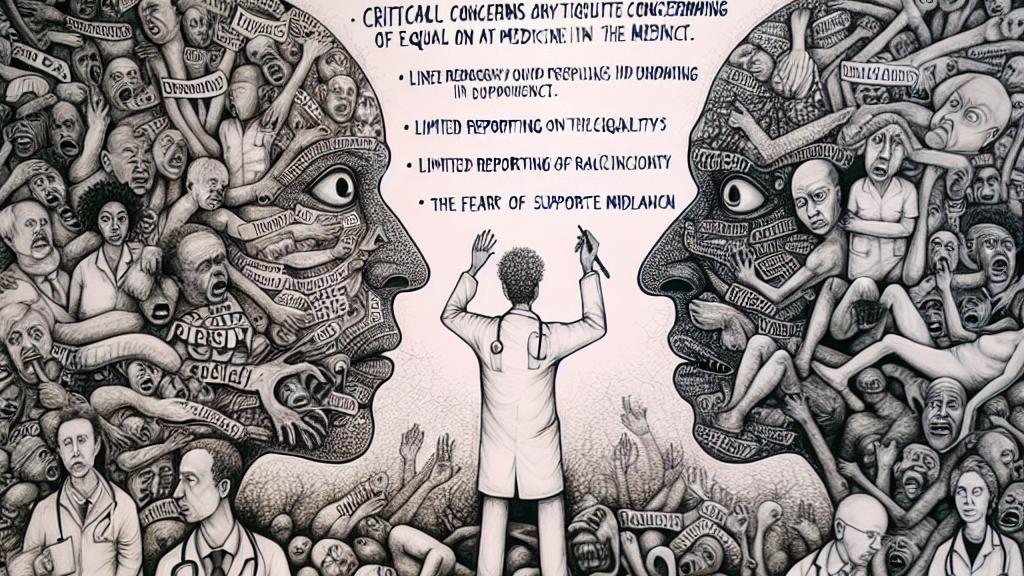Understanding Racism in Medicine and Its Impact
Overview
- Racism in medicine poses a significant barrier to achieving health equity.
- While medical schools are making strides, greater accountability is needed for lasting change.
- Structural racism continues to shape healthcare policies, affecting access and quality of care.

The Current Landscape of Racism in Medicine
In the UK, the issue of racism within medicine remains not just a concern, but a looming crisis. Shocking statistics reveal that about 80% of medical schools are now collecting data on complaints about racism. However, can you believe that only 138 complaints have been logged? Given that nearly 25,000 ethnic minority students are pursuing medical careers, this disparity raises crucial questions. Are students truly comfortable reporting their experiences, or do fears of backlash stop them from speaking out? A supportive environment is vital; without it, how can we expect to address the deep-seated issues in our healthcare system?
The Role of Medical Institutions
Medical institutions hold immense power when it comes to combating racism. Indeed, a remarkable 83% of UK medical schools have taken steps to adopt guidelines aimed at addressing racial harassment. Although this is a positive step, there’s room for improvement. Most of these protocols often fail to encompass clinical placements, where students frequently report feeling unprotected. For example, during hospital rotations, many students have expressed their discomfort and vulnerability when interacting with patients. Addressing these gaps is crucial; we can't afford to have policies that only exist in theory while students face real-life challenges.
Structural Racism in Health Care Policies
In the United States, structural racism permeates healthcare policies, causing dire consequences for racial and ethnic minorities. Historically, these policies have favored white populations to the detriment of others. Just think about the fact that Black and Latino individuals are vastly overrepresented among the uninsured, making access to necessary healthcare a Herculean task. During the COVID-19 pandemic, these disparities became even more pronounced, as these communities suffered significantly higher rates of hospitalization and mortality. Behind those statistics are real lives—families, dreams, and futures interrupted by an inequitable system. As this crisis unfolded, it became painfully clear that a paradigm shift is not just needed; it is urgently required.
Personal Experiences with Racism in Medical Settings
Personal narratives serve as powerful reminders of the challenges posed by racism in medical settings. One physician shared her troubling encounter with a patient who outright refused to receive care from her simply because of her race. Imagine the emotional strain on professionals who are dedicated to their craft but face such blatant discrimination. This not only undermines the trust needed in patient-provider relationships but also creates barriers to quality care. Therefore, it’s crucial that we address these biases, which can cloud judgment and hinder effective treatment. Cultural competency training and awareness initiatives could be game-changers in addressing these issues.
Moving Towards Solutions
To effectively combat racism in medicine, we must adopt a multi-faceted approach that addresses systemic change. First and foremost, we need policies that enhance healthcare access, dismantle institutional racism, and promote diversity. Think about community health initiatives that foster dialogue and education; imagine the ripple effect these can create, bridging gaps between providers and underserved communities. Investing in outreach programs can yield lasting benefits, nurturing understanding and support. If we make these changes, we create a healthcare environment grounded in empathy, where everyone, regardless of their background, receives the respectful care they deserve.

Loading...